
by Sekou | Jun 29, 2020 | Features, Mental Health
I HATE ROUNDABOUTS! Seriously, why were they created? You can say, “They help traffic out!” NO THEY DON’T! Roundabouts are accidents waiting to happen. No one knows who has the right of way, there are two lanes where you can still go the same direction, but you still risk grazing another car, and don’t get me started on roundabouts coming off the highway! You hop off those and the GPS says something like, “Turn right when you turn left, then jump,clap your hands, and do the stanky leg”. WHY?? Do you know what is better than roundabouts? Stop lights. Stop lights are easy to understand, are less of an inconvenience than roundabouts, and the most important part: they were invented by a Black man! Allow me to tell you about Garrett Morgan. Garrett Morgan was born in 1877 on March 4th in Paris, Kentucky. The seventh of 11 children, his mother, minister Elizabeth Reed, was of Indian and African descent, and his father, Sydney Morgan, was a freed slave. Sydney’s father was Confederate colonel John Hunt Morgan who was white.
As a teen, Morgan moved to Cincinnati to look for work, and became a wealthy landowner’s handyman. At this point, he only had an elementary school education. However, he was able to pay for private tutoring with his job. This didn’t last long, as he started working at different sewing factories. Working at these sewing factories started his line of inventions. Yes, line of inventions, as he patented a new and improved sewing machine. He also opened his own repair business, which was a success. This was a catalyst in his business success and financial success.
Morgan opened a tailor shop with his wife, who had experience as a seamstress, and noticed that fabric was scorched by the needle. Morgan used a chemical solution to help reduce friction from the needle, and noticed that the hairs were straightened out. He tried this on his neighbor’s dog’s fur, and then finally tried it on himself. It worked, and the G.A. Morgan Hair Refining Company was born! He sold this cream that he made to Black people and let’s just say that business was BOOMIN’. This gave him financial security, and he pursued even more interests.
Morgan got bored in 1914, so he decided to create a breathing device, a “Safety hood”, if you will. This was actually the precursor to the gas mask, and he attempted to market it to fire departments. There was one problem though with this, along with his other devices: no one took Black people seriously, especially down South. Racial tension was still stronger than ever. In order to market his inventions, Morgan hired a white actor to pose as the “inventor”, while he posed as his Native American lackey, “Big Chief Mason”, who would wear the breathing device. This worked and sales were up! They came into play in a very big way. (Editors note: This is unbelievably unfortunate that this was one of the only ways a Black man would get noticed)
In 1916, Cleveland was drilling a tunnel under Lake Eerie, when they hit a pocket of natural gas, causing an explosion. This explosion trapped workers and had the risk of suffocating them. In comes Morgan and his brother, who put on the breathing devices and went to the tunnel. They saved the lives of two people and recovered 4 bodies. Morgan got publicity from this, and people now knew that he was Black. Even though he saved people, the public did not want to buy and support a Black man, so plenty refused to buy any of his products. Due to this discrimination, Morgan and his brother’s efforts were never truly recognized. Others were named as the rescuers. Let me just say that this is unfortunately a microcosm of how America is. Especially at this time, America didn’t want you to believe that a Black man was smart or business-savvy. They still don’t want you to believe that. Morgan still kept on and invented even more.
Morgan was the first Black man in Cleveland to own a car. With this car, he became something of a mechanic, and developed the friction drive clutch. One day when he was driving, he witnessed a carriage accident at an intersection that was in the city. He saw how this was a big problem, and created a traffic signal with a warning light, and quickly patented it, in 1923. He eventually sold the rights to General Electric for $40,000.
Garrett Morgan was well-rounded, as outside of inventing, he supported his community throughout his whole life. He was a member of NAACP, donated to Black colleges, and evened opened an all-Black country club! Morgan died on July 27, 1963.
Garrett Morgan’s story is one of countless Black inventors and innovators. His story is one of the reasons that this series exists. He had so many amazing ideas that he was able to make happen, but only through making people believe that he was just the sidekick, and not the main inventor. He literally saved lives, but people didn’t care. They saw that he was a Black man, and didn’t want to support him in any way, shape, or form. Sadly, these things still happen today. However, this didn’t discourage Morgan. He invented even more, making a traffic light that we still use today, a drive clutch, and finally becoming recognized for his heroism at Lake Eerie shortly before his death. Garrett Morgan’s story could have been tragic, but he kept pursuing his passion, and poured into his own. Garrett Morgan will be remembered and appreciated. MT Out!
Biography.com Editors. Garrett Morgan Biography. 2 April 2014. 28 June 2020
Photo: Photo of Garrett Morgan
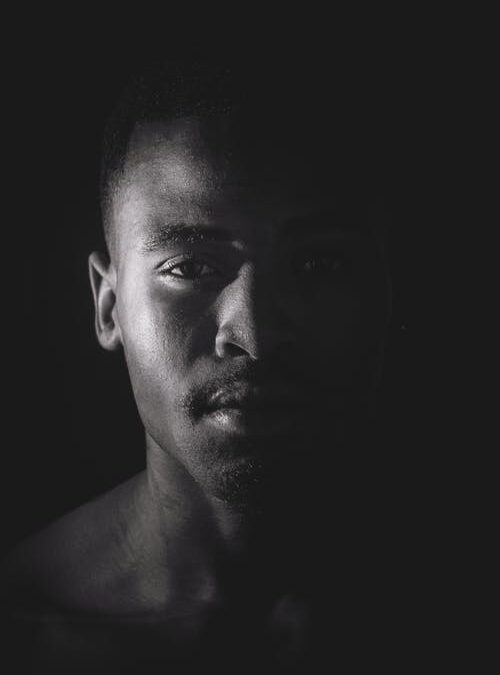
by Sekou | Jun 8, 2020 | Features, Mental Health
Let me start by saying this: rest in peace to the unending list of Black men, women, and children who have been unlawfully murdered. It has been an epidemic since we got here. Man, it is HARD to be Black in America. You are constantly looking over your shoulder to make sure you are doing the right thing so people don’t put you in jail. You are constantly trying to make sure you aren’t “threatening”, because if somebody (specifically, White) says you are threatening as a Black person, then it is truly a death sentence. You also get very uncomfortable when you are driving at night, and a car is behind you. Even if it is another entirely different car, even if it is a Cadillac Escalade, you still have in the back of your head, “what if it’s a cop car?” This is all paranoia, but it is the most justified paranoia in America. It is Black Paranoia.
If you have felt unbelievably nervous going down to a protest as a Black person, if you have felt like you needed to hold your tongue around coworkers and non-Black friends about issues that you deal with, if you have felt like the workforce has been a place where you have to protect egos and fragility, you have felt this Paranoia. These are just small byproducts of the larger reason.
This paranoia stems from a system that was set in place 400 years ago. Yes, to track this paranoia, we have to go back to slavery. There is something known as Post Traumatic Slave Syndrome. This is where Black Americans still feel the effects of chattel slavery.
Why do we feel these effects? Well, when slavery was first abolished, we were not given anything. They pretty much said, “Well… we can’t keep y’all so goodbye.” We did not have housing, we didn’t have resources, and we didn’t have anyone have empathy for us. Certain practices were still in place, even though we were free. For example, the first free generation wouldn’t look a white person in the eye when they were talking to them. This, thankfully stopped with the generation after that, but with Jim Crow laws in place and us (Black America) still being treated like we were sub-human, and we never got empathy or compassion. Coming into now, people still care more for animals getting killed than Black lives.
So how does Post Traumatic Slave Syndrome manifest itself? Well, according to Dr. Joy DeGruy, it manifests itself in “vacant esteem, described as insufficient development of self esteem, along with feelings of hopelessness, depression, and a general self-destructive outlook.” For example, feeling like talking properly is “White shit” and feeling like Eurocentric features are the pinnacle of beauty; a marked propensity for anger and violence and an extreme suspicion and perceived negative emotions of others. Also, violence against self and others in the community. For example, having a strong distrust for white authority figures, such as bosses and of course, the police. Also, us not wanting to go to therapy because most therapists are white. These are just a couple of things that Dr. DeGruy discusses in her book.
See, in America, being Black is already a misdemeanor. It is something that you are guilty of being when you are born. And no one feels bad about it. White America looks at you skeptically, and they look at you like you have done something wrong. This “looking” manifests itself in different ways, such as microaggressions, using statements like “they” or “those people”, saying, “you’re one of the good ones and not one of those ‘thugs’”, and of course, All Lives Matter.
As a Black man, let me say this: when I hear a White person say, “All lives matter”, I get nervous, because I know that if I were to die by the police, or some White person who just happened to have a shotgun at the time, I know that you would not care about me. If all lives matter, then why aren’t you pissed off that plenty of people have been unlawfully killed at a disproportionate rate? You don’t think all lives matter. You’re mad because you believe my life, as a Black man, doesn’t.
So what is Black Paranoia? Black Paranoia is being afraid for your life at a routine traffic stop. Black Paranoia is feeling like you are obligated to attend protests because you are Black, but feeling scared to go for fear of arrest, and just being emotionally drained from the protests because this is an experience you live every day. Black Paranoia is being afraid to speak up about how people care more about animals than your own life. Black Paranoia is feeling like you always have to explain that you don’t mean “all white people” when a white person starts to feel bothered because you are discussing racism in the country. Black Paranoia is real, it is hard, it is what needs to be talked about. Not to explain to the well-meaning white people or the racist white people. This is to give Black America a voice. We have been silenced for far too long. We will be heard. We have been getting heard all across the country. Black Lives Matter.
DeGruy, Joy. POST TRAUMATIC SLAVE SYNDROME. n.d. 1 June 2020.
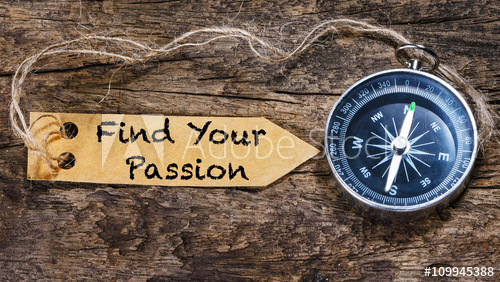
by Sekou | May 13, 2020 | Features, Mental Health
Let’s talk about something that doesn’t get discussed enough: school. Now, school is an important part of life. We all probably should go to school up until we’re 18. We learn the building blocks that we’ll need in life. We may not need trigonometry, but you better know what 2+2 is by the time you’re 10. Obviously, this school is the standard, but let’s discuss higher education: college. Now, this is controversial. However, let me say congrats to the recent college grads, even though this wasn’t the most ideal situation to graduate in. This is not an easy feat. As a matter of fact, according to one of my capstone speaker, around 30% of people graduate with their bachelor’s degree. That is not an easy feat.
With that being said, there is a big question about college: do kids really want to go? Or do they go because it is being forced on them? It is a difficult question to ask. Of course, there are cases of both. There are people that want to go in order to further their education and want to continue after that (grad school, med school, etc.) However, there are just as many who want to go just because they feel like they should. Because that is what is expected of them from their parents, their peers, their school, and many more. College can be fantastic (maybe not the best 4 years of your life, but hopefully, you will enjoy them more than you don’t), but what if your passion does not fall in line with a major?
Imagine this: you want to be a big YouTuber. You idolize a lot of YouTubers, and you get started early, at like 15. By 18, you have 900,000 subscribers, are getting big sponsorships, and have some of the best content on YouTube. You start facing an issue: you feel like you should go to college and major in biology because everyone expected you to be a renowned doctor when you get older. You are faced with a choice: do what you love and what you’ve been doing all this time, the thing that you have made a career out of, the thing that you put all your hard work in, or you sacrifice that, go to college, do what is expected of you, only possibly enjoy those 4 years, and become a biologist. When put that way, it is pretty easy which choice to make, right? Well, people choose option #2 more than you’d think.
The whole point of this is the fact that your passion is important. It doesn’t matter what that passion is, if you are passionate about it, it is worth exploring. We are often bogged down by the expectations of society. Some people know what they want to be and they might not need college for that. Our issue stems from the fact that we feel like we need to fall into the status quo of society, and we want to have a “competitive edge” over others. First of all, no one knows that you’re competing with them (see this article for a further explanation of that:https://musiqtherapymag.com/ugly-competition/), secondly, this is only hurting yourself. Why would you stop something that you love doing because it is out of the norm. Would you stop eating your favorite food because it is unpopular? No, you’d say, “Hey, more for me!”
Now, this is not a post about how colleges are evil corporations that only want your money. Like I said, you’ll hopefully enjoy those 4 years or longer (no shame in that) than you don’t enjoy them. You can also discover your passion there. High school isn’t the place where you usually find what you want to do forever. Going to college, you might take an elective that you are passionate about, and you might find that you want to choose that as a career path instead. You might be scared because you don’t know if it will take off, or where it will take you. And that is ok. Here is the question you need to ask yourself: does your passion outweigh your insecurities? To use the example used earlier, does your passion for YouTube outweigh your insecurity of challenging the norm? If that answer is yes, then please go for it. If the answer is maybe, go for it. If the answer is no, then remember this: You only have one life given to you. Why would you want to live it doing something that you feel like you “have” to do? Don’t live your life through the lens of other people, and don’t worry about the reception you will get. If it makes you happy, that’s all that matters. Peace, y’all!
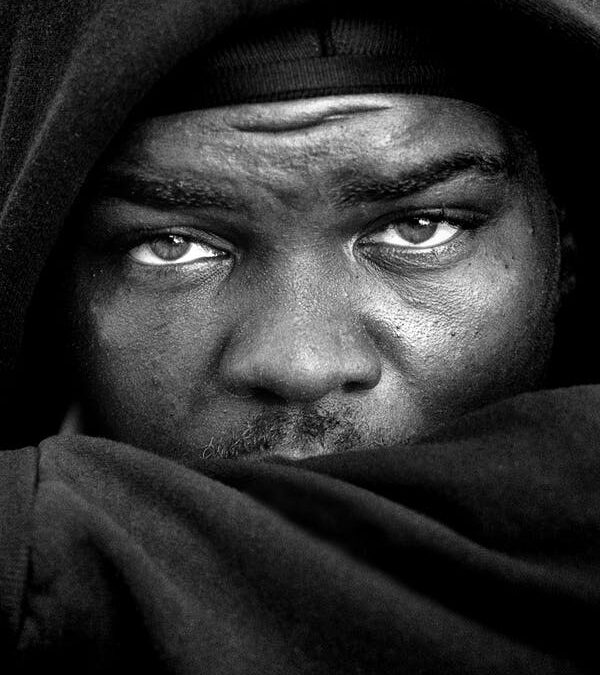
by Sekou | May 1, 2020 | Features, Mental Health
Eric Garner, Alton Sterling, Philando Castille, Tamir Rice, Sandra Bland, Trayvon Martin, Botham Jean. What do they all have in common? They were all shot down by the police in controversial (or unlawful) fashion. Black people, including myself, have gotten pissed at this regular occurrence. So much so that we made a point to say that Black Lives Matter, back around 2014. But people, specifically White, tried to say that all lives mattered. Why? Was it because they truly believed that? Or was it because they wanted to oppose us? Sometimes, it is hard to tell the easy truth. But then, more occurrences happen and it gets louder. “Black Lives Matter!” Then, a police officer gets shot, and we hear “Blue Lives Matter.” Then we hear “All lives matter.” Then, a police officer comes in and shoots a man IN HIS OWN HOME and starts barking orders. Do you know what most of these have in common? Most of the killers got off scot free. One of the ones that didn’t get off free was still comforted by the Black judge. This is why we kneel.
People dressing up in blackface because it is “funny”… this is why we kneel
Police being called on Black people for having a BBQ in a park… this is why we kneel.
Police being called on a ten-year old Black girl for selling water… this is why we kneel.
“Why can’t I say nigga?” This is why we kneel.
Black people being 12% of the population, 33% of us being in prison, and plenty of us in for petty crimes that would give a White person a slap on the wrist (maybe even an interview on TMZ…). This is why we kneel.
Trump is the President of the United States… that’s enough of a reason to kneel.
A few years ago, I saw something on Facebook. There were a slew of people weighing in on the Nike Kap situation. I saw a comment, and it went along the lines of, “I am a White man, and now I feel oppressed.” This is upsetting to me. Why? Because not being able to say you don’t like Nike because they support Kaepernick is not oppression. Being silenced when we continuously get killed is oppression. Saying that a Black person mean mugged you (looked at you mean for those who haven’t talked to any Black person) is not oppression. A White officer with a gun to your head after you have complied is oppression. You being scared of Black people existing is not oppression. Black people being incarcerated at a higher rate than White people while only making up 12% of the population (because of White people being scared of a Black person’s existence) is oppression. A Black person saying, “White people be trippin’” is NOT oppression. The word, “nigger” is oppression.
You want to know why we kneel? We kneel for the same reason you act like you stand (you don’t stand up at home…), because we care for this country. As much shit that goes on here, we love it, but we want it to change. If you have an unruly child, what do you do? You don’t let things slide, you don’t turn a blind eye, you don’t act like nothing is happening… You discipline, you reprimand, you talk to them. The same needs to go for a nation that unlawfully kill Black people at a disproportionate rate. We will not stand for this shit anymore. Let me tell you all something: as a Black person, we are given two talks from our parents. We’re given the usual “birds and bees” talk, but then we’re given something much scarier. We get the cop talk. “If you get stopped, call me; do everything that they say, be as careful as possible.” Police stopping Black people is not just “a part of life” for us. It is terrifying. Our life flashes before our eyes. Even if it is a routine traffic stop, even if we’re completely in the right, that doesn’t matter. Hell, we can know our rights, and that won’t help us. We can comply with every demand, it doesn’t matter. We can be in our house, it doesn’t matter. We can be 12 years old, it. Doesn’t. Matter. That is why we kneel. That is why we’re oppressed. We should NOT have to fear for our lives around the ones who were sworn in to protect me. We should NOT have to worry about the lives of all our little siblings, some who may be teenagers (scariest thing to a police officer is a Black teenager) and some who may not have hit puberty yet, because the people who are supposed to protect them are scared. If the only thing that you can say to this is, “Well, you people aren’t slaves anymore!” Or “But I’m White and now I’m oppressed!” Or any empty platitudes about how we should pray on it. First off, y’all love thinking that not being slaves means no oppression for people who think they are oppressed because you can’t share your racist opinion, second, faith without works is dead. Again, that’s why we kneel, that’s why we protest, but y’all think that’s anti-American because you’ve been told you’re supposed to stand. Even though, you’re probably sitting at home. Lastly, unfollow Musiq Therapy if you truly think that you’re oppressed because you are nervous to express your true opinions and especially if you don’t think Black people are oppressed. We care about America, we want it to change, and we will do what we can to bring attention to the injustices. That is why we kneel.
Data from http://www.pewresearch.org/fact-tank/2018/01/12/shrinking-gap-between-number-of-blacks-and-whites-in-prison/
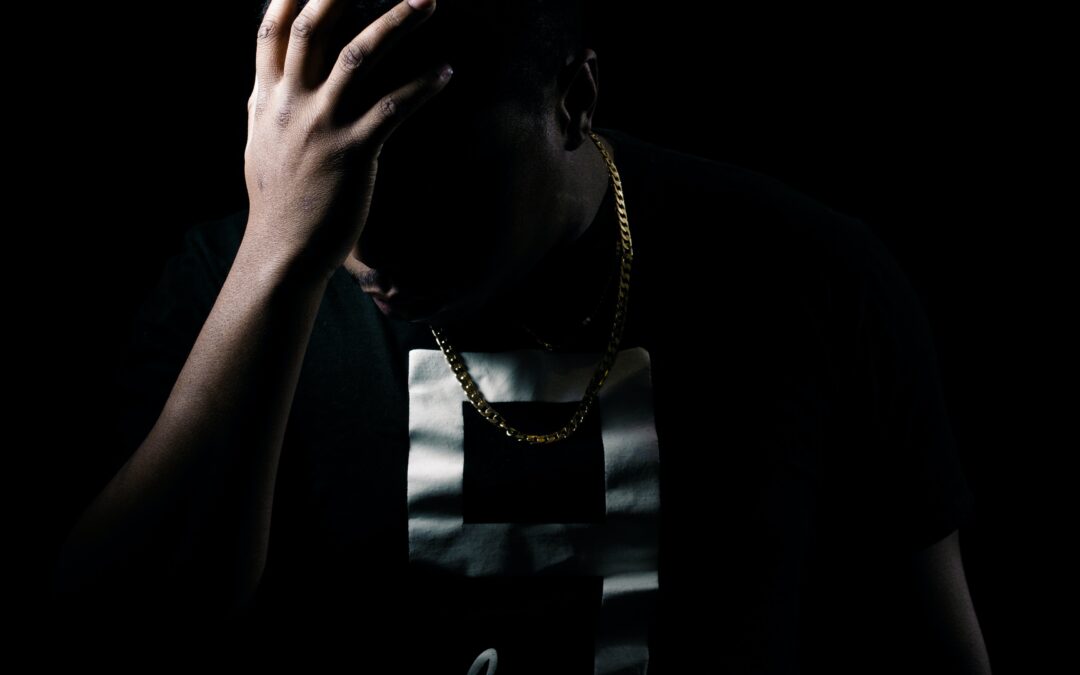
by Sekou | Apr 12, 2020 | Mental Health
So, this is going to be kind of difficult because I hate vulnerability. Yet, I’m about to delve into the topic of men and vulnerability sparked by something I saw a while back.
I rarely cry. As a matter of fact, I hate crying. I am super emotional. But I rarely want to cry, and my emotions translate to extremes. I’ll just go extreme in wearing my heart on my sleeve, or I’ll go extreme in being closed off. If I cry, it typically needs to be something that hits me really hard. I hate being vulnerable in general. Unfortunately, this isn’t uncommon in men and we need to learn why this is actually a sign of strength instead of weakness. However, vulnerability doesn’t just mean crying. It could also be letting people in, which is something else I’ve personally had to work to resolve.
For example, I might have known you for years, but you’ve never been to my house. I have a lot of difficulty opening to people and letting them into my space. For me, that is super vulnerable. That being said, I feel lonely a lot, no matter how many people are around. Would I ever say that? No, I’d much rather act like I had everything together or just go to an extreme where people will be scared. It’s a huge problem that many men have, and it all comes back down to vulnerability. As I questioned why this is a major issue for men, I realized we have been conditioned to believe that vulnerability is an inappropriate emotional response. When we are very young we are told that crying is weak; that you can’t have emotions other than anger; that you have to be ready to fight anyone that comes to you and you need to win but not be a violent person; be respectful to everyone but not too respectful so you have an edge that makes women love you and guys want to be you; fight to be the most dominant entity in the room but not care when you’re not the most dominant entity in the room; that we have to play sports; that we have to be rich to be taken seriously, and more and more and more. We don’t talk about this enough. We don’t talk about how toxic masculinity and the fear of vulnerability messes with our heads. Let’s talk about barriers.
“I’m Gonna Look Weak if I’m Vulnerable”
Full transparency, I’ve felt this way too. This is the biggest barrier because we are all so focused on image. We all care about what people think to an extent (even if you say you don’t, you know you do), and when you have been told that you have to look like the toughest guy in the room since you were in kindergarten if not before then, you can’t show any signs of weakness. But we have to understand that vulnerability is human. We also have to understand that emotions aren’t weakness. It is okay to say, “I’m feeling down” or “I’m feeling alone”. There is no shame in that.
“I’m not a Man if I Cry!”
Yes, you are. You’re still a man if you cry. Being a man is not about how tough you portray yourself, how many people you have slept with, or how much you can emasculate another man for not being up to the “standard”. It’s okay to have emotions. I hate that it has become so taboo for men to cry or show any emotion other than anger that we don’t know how to react when we see another guy cry. Think about it: how would you feel if one of your guy friends started crying? You would feel strange because we don’t let natural emotion take over enough. Take that barrier down so we can feel better.
I Don’t Know How to be Vulnerable
I understand this because I don’t fully comprehend how to do so either. You know what, though? Saying this is a start. Talking about the fact that we don’t know how to be vulnerable is a step in being vulnerable. Here are a few things to do that I think have helped or could be helpful.
Be open with yourself
Yes, this is cliché as all hell and I hate clichés as much as the next person, but you have to do this. Think about why you feel upset or mad or just sad and be open with those feelings. Don’t try to neglect them. Just feel.
Talk to someone
This. Is. Scary. As. Shit. For me, at least. I can now be open about having certain feelings, but it is really hard for me to tell someone why I feel that way. Talking is what helps build connections and opportunities to become better friends with people. It also helps create an opportunity to get help if that is necessary.
Let someone help you
Speaking of help, let someone help you! I cringed writing this part… If you’re like me, you HATE asking for help. Like, you would rather go through hell and back twice by yourself than even think about asking anyone for help. You don’t want to need advice, you don’t need anyone else, you can do this on your own and you can survive because “that’s what a man does.” You possibly have gone through tough shit on your own before, so you don’t need help from anyone at all. But it would’ve been so much easier if you got help. It’s all about letting go of that internal pride. When you let go of that pride and just start to ask people for help, (no matter what it is, it can be different for everybody) things can work.
Toxic Masculinity Needs to STOP
Let’s talk man-to-man. We are still men if we cry. We are still men no matter our race (now, if you’re racist, you’re just a piece of shit but let’s assume you aren’t racist). We are still men no matter our sexual preference or history. We are still men if we don’t watch sports and would rather go to a musical. We are still men if we don’t look like The Rock. We are still men if we don’t like confrontation, and most importantly, we are still men if we are vulnerable. Toxic masculinity is pretty much all the machismo attitude cranked up to 12. This encompasses homophobia, misogyny, rape culture, and many other things. I can’t touch on all the topics that toxic masculinity gets into (that can be its own article), but I will say this: we need to start changing the narrative. We need to teach young boys to cry, we need to teach young boys to not settle everything with violence. We need to teach vulnerability because a young boy who grows up thinking that he can’t be vulnerable turns into a man who thinks he can’t be vulnerable and ends up being explosive. One of the worst things you can ever say to a kid is, “Stop crying all the time! Real men don’t cry!” That’s bullshit. The most real men I know cry, and it is insane to me that a lot of men still feel this way. Let’s start changing what it means to be a man because I don’t think we have a social definition anymore.
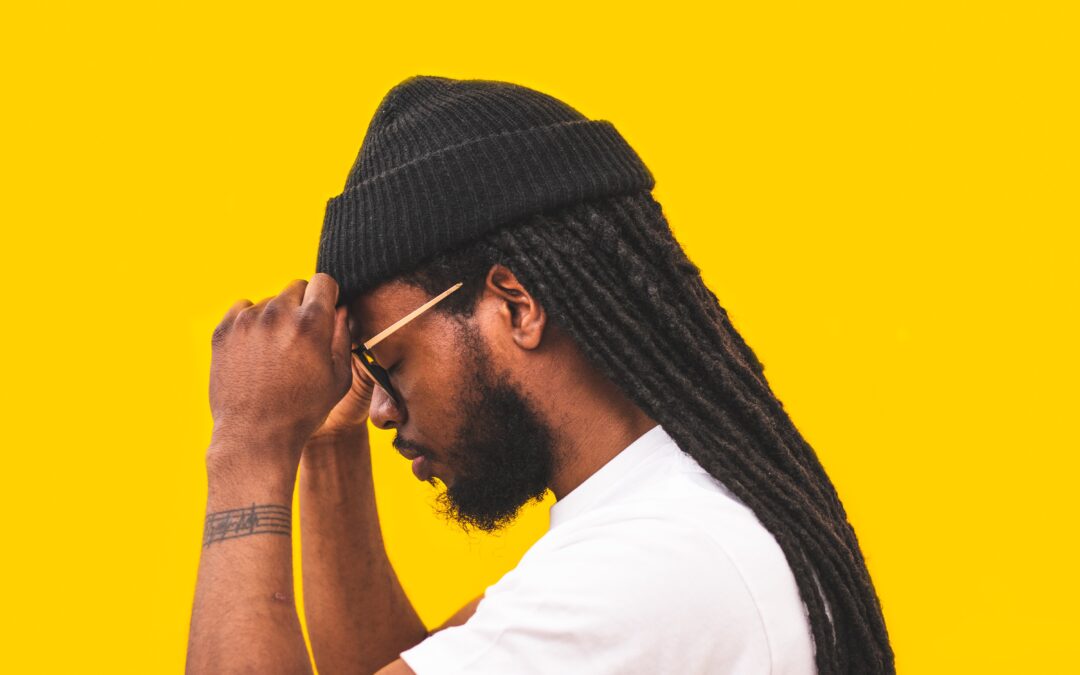
by Sekou | Mar 28, 2020 | Features, Mental Health
Competition: one of the building blocks of life. Think about it: how many situations were you put in because of a competitive spirit? How many games have you won because you hustled hard? It is something that is necessary in life, whether we like it or not. However, how many times has that competition soured a good friendship? How many times has the competition caused you to do something where you might have been in over your head? How many times has that competition gotten ugly? That is what we’re here to talk about, when that competitive spirit gets the best of us and causes us more tribulations than triumphs. Ladies, gentlemen, and everyone in between: this is Ugly Competition.
You become individual when you need to be a collective.
Have you ever become part of a team? Whether it’s sports, work, or something else? Have you ever been working with someone and then you start thinking, “I’m better than them…” This is probably not the time to prove when you’re better than someone else at something. Competition is great when you are on opposing teams, but when you are working as a collective, all you gain from that competition is spite. You start disliking your team members, and there becomes tension in there. Collective is also family. A lot of us have arguments with our families, which is natural. However, sometimes we should all just listen to each other as opposed to trying to compete with one another. In this case, competing can be trying to talk over one another and not listening to each other. We can all benefit from shutting up and hearing each other out before we start trying to prove we’re right.
Feeling like you shouldn’t do something when someone else is doing it.
This is a big one. Sometimes, our competitive spirit means that we need to compete to be different, at least in my case. You might want to do something but if you see someone else already doing it, you want to do something different. This is also an individualistic thing, but this is common with competitive spirits. Sometimes, competition can mean being the most “odd one out”. However, we should not dictate our interests just because of someone having the same one.
Tunnel vision.
This encompasses so much. When you start getting too competitive, you start having tunnel vision on just one thing, ignoring plenty of other things. For example, let’s say you start competing with someone for a writing position. That competition could cause you to hustle hard (shout out to Ace Hood), but you also might start losing sleep and trying to find ways to trump your competition. You got the job! Only to find out that the job was a lifestyle blogger and you write about sports. And then you find out that your true calling in life was to be a chef. The point being that your tunnel vision made you ignore what you’re really good at, and you just wanted the opportunity to beat someone at something, which leads into my next point…
No one knows you’re competing with them!
Sad but true, y’all… None of us know that we’re competing with each other. Unless we’re on different teams in a similar field (two music publications, or two musicians), usually we don’t even know that we’re competing. What are we even competing to get?? Bragging rights? Accolades? Making someone feel bad? I can tell you right now, that if you don’t want to do something and you only do it to spite another person, you might end up winning an imaginary battle, but that other person has won the real life war. They probably found another opportunity, something that they wanted, while you just wanted the other person’s perceived success. Don’t end up mad because you’re now a miserable exec at a company when all you wanted in life was to be a happy cashier.
Please don’t take away that competition is bad from this. Competition is really good! It’s a part of life. You have possibly played a sport in your life and there’s competition there. You have found a rival in someone and you might be competing with them. That is part of competition sometimes. There are times when you might need an extra kick to do something and having a rival can easily help with that. It gives you the drive to do things that you never thought possible, you start to develop more assertiveness, and the reward feels pretty damn good sometimes. However, you need to understand who you are competing with and who you are competing for. Your biggest competition should always be yourself, and you should be competing for yourself. This is your life, and you shouldn’t be competing for others. What I mean is this: if you start lifting weights because you want to be healthy and want to get stronger, then you take it more seriously. That’s competing for yourself. Now, if you are there because you want to get girls or guys, or because of societal pressure, then you are competing for other people. Once the sense of competition wears off, you stop competing. So, make sure that the main person you want to be better than, the person that you want to be stronger than, the person that you want to beat, is you before anyone else.







